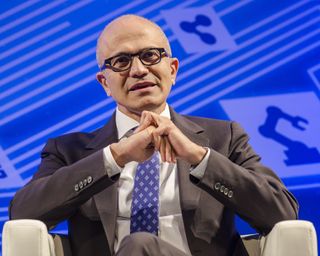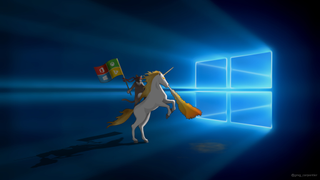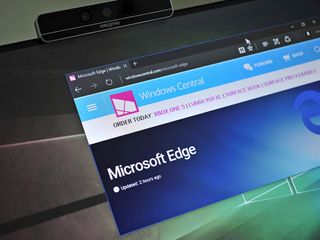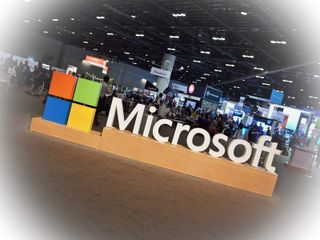Microsoft is now the world's most valuable company — and it's less trustworthy than ever
After a week-long battle, Microsoft ended the week of November 30th ahead of Apple as the world's most valuable company — but not everyone is happy.

Microsoft recently achieved the 'enviable' position of edging out Apple as the world's most valuable company. Wall Street is happy, investors are ecstatic, and Microsoft's bean counters are patting themselves on the back for a job well done. Unfortunately for the Redmond-based company, not everyone has leaped onto the celebratory bandwagon. There are a segment of consumers, Microsoft enthusiasts to be exact, who have or are contemplating jumping ship on Microsoft's ecosystem of products and services. Admittedly, given the success of Office 365, Azure and other growing segments the impact would likely be minimal. Microsoft knows this, has likely measured the cost and quite frankly probably doesn't care all that much.
The road to Microsoft's current industry-esteemed position is littered with the collateral damage of betrayed consumers, abandoned products, multiple shifts in direction, botched updates, overly aggressive update practices, and notoriously poor communication. Microsoft enthusiasts bore the brunt of what seems to be the company's inability to commit to a given course for the long-term as products and services are slashed from Microsoft's roadmap.
Microsoft CEO Satya Nadella has been accused of catering to Wall Street at the expense of advancing strategies that would benefit the company if they were given the opportunity to grow roots. Of course, armchair CEOs and analysts have little knowledge of the true inner workings and variables that a CEO of a multibillion-dollar company must contend with in a highly competitive, fast-paced and dynamic global market. Still, the impact of burned bridges and betrayed trust is not a trivial matter. And Microsoft's road to becoming the world's most valuable company has left a lot of broken trust in its wake.
Imperfect Windows 10

For a company that endured years under the Department of Justice's microscope for monopoly concerns and unethical practices, Microsoft's aggressive push of Windows 10 has raised many eyebrows.
The company's ambitious 2015 goal of one billion Windows 10 installs in two years drove the company to employ questionable tactics to "encourage" users to upgrade. The annoying taskbar alert that would not go away plagued many users and provoked questions on how to remove it. Not everyone wanted to upgrade to Windows 10 as bad as Microsoft wanted them to. Anecdotally, I have a 7-inch Windows 8.1 tablet upon which the touch experience would have been negatively impacted had I clicked the "ok" on that Windows 10 Upgrade demand reminder.
I got off easy compared to some others, however. There were troubling reports that Microsoft actually "forced" some users to update to Windows 10 without their express consent. I doubt Microsoft now being the world's most valuable company softens the enduring impact that breach of trust had on those users.
Consumer conundrum

A consumer's ecosystem choice is a financial, emotional, time and psychological investment. Though the alliances we forge with companies and the lines we draw between our positions and the boundaries of other ecosystems may seem ridiculous in the grand scheme of things, they are real nonetheless. So when consumers chose Microsoft's ecosystem and embraced its take on wearables with the Microsoft Band, phone with Windows phones, music with Groove and much more, the impact of Microsoft throwing in numerous towels on these and other consumer products hurt on many levels.
Get the Windows Central Newsletter
All the latest news, reviews, and guides for Windows and Xbox diehards.
The implicit trust relationship demanded that Microsoft, from the perspective of consumers, owed it to them to fight for the products and services they took a chance on (for Microsoft) when there were other proven options. If a user could invest a few hundred dollars in a range of products and champion them, then the feeling of many (valid or not) was that a multibillion-dollar company could fight for its own products and for those who embraced them. The harsh reality, however, is that the feelings of a minority representation of consumers didn't factor into the company's strategy or balance sheet goals.
Those feelings were, to an extent, acknowledged as valid. Nadella admitted regret for abandoning users to chase the "next shiny thing" but the damage had been done. His promise to make phones if no one else did amounted to hollow words that paralleled the abandoned investments in Zune, Groove and other projects. Though dropping those products burned some users it did move Microsoft closer to its most valuable company position. So there's that.
Cortana digital assistant disaster

In 2014, Microsoft excited Windows Phone users with the introduction of Cortana, which was billed as the world's most personal digital assistant. With an openness to third-party apps, time, location and people-based reminders, text and verbal interaction and its association with an esteemed gaming brand, Cortana was differentiated from entrenched rivals Siri and Google Now.
Sadly, those advantages were squandered away as regional restrictions and other limitations hampered her evolution. Google Assistant is arguably now the world's most personal digital assistant. Amazon's Alexa is virtually a household name. And Samsung's Bixby with its platform agnostic Viv integration is positioning to be that "anywhere" assistant Cortana was supposed to be.
Cortana meanwhile is no longer headlined as a digital assistant as Microsoft has realigned her as digitally assistive. Consumers who trusted Microsoft's hype concerning what Cortana would be have been slapped, yet again, with the reality that Microsoft has a hard time following through.
Find your files, and Edge be gone

One would think that the world's leading software company with its decades of experience pushing an industry-leading operating system could issue an OS update that doesn't destroy user personal files. Sadly, Microsoft fumbled the October 2018 Update which led to that very outcome. The confusion around how Insider's reports of the issue were mistaken for another issue explained what happened. Still, such a blunder may be a lasting mark on users confidence in Microsoft's competence.
Microsoft's homegrown Edge internet browser was touted as the company's modern take on a browser beyond is troubled Internet Explorer. After just three years, Edge's rendering engine is being retired in favor of Chromium.
This may be the best strategy for Microsoft, but in the context of its history of throwing in the towel and betraying commitments after brief or half-hearted efforts, even this potential good move is overshadowed by a bitter past.
Trustworthy?

Despite the burnt bridges, Microsoft's business is doing better than ever. This is no consolation to the early adopters, enthusiasts and product evangelists that helped Microsoft along the way. Their efforts and irrecoverable investments of time and money have been rewarded with Microsoft's unspoken acknowledgment that they were among the collateral damage along Microsoft's journey to becoming the world's most valuable company.
Microsoft's history has caused many former enthusiasts to conclude Microsoft cannot be trusted. If that negative history begins to have a broader market impact, Microsoft's esteemed "world's most valuable company" status can be affected.
Jason L Ward is a columnist at Windows Central. He provides unique big picture analysis of the complex world of Microsoft. Jason takes the small clues and gives you an insightful big picture perspective through storytelling that you won't find *anywhere* else. Seriously, this dude thinks outside the box. Follow him on Twitter at @JLTechWord. He's doing the "write" thing!

